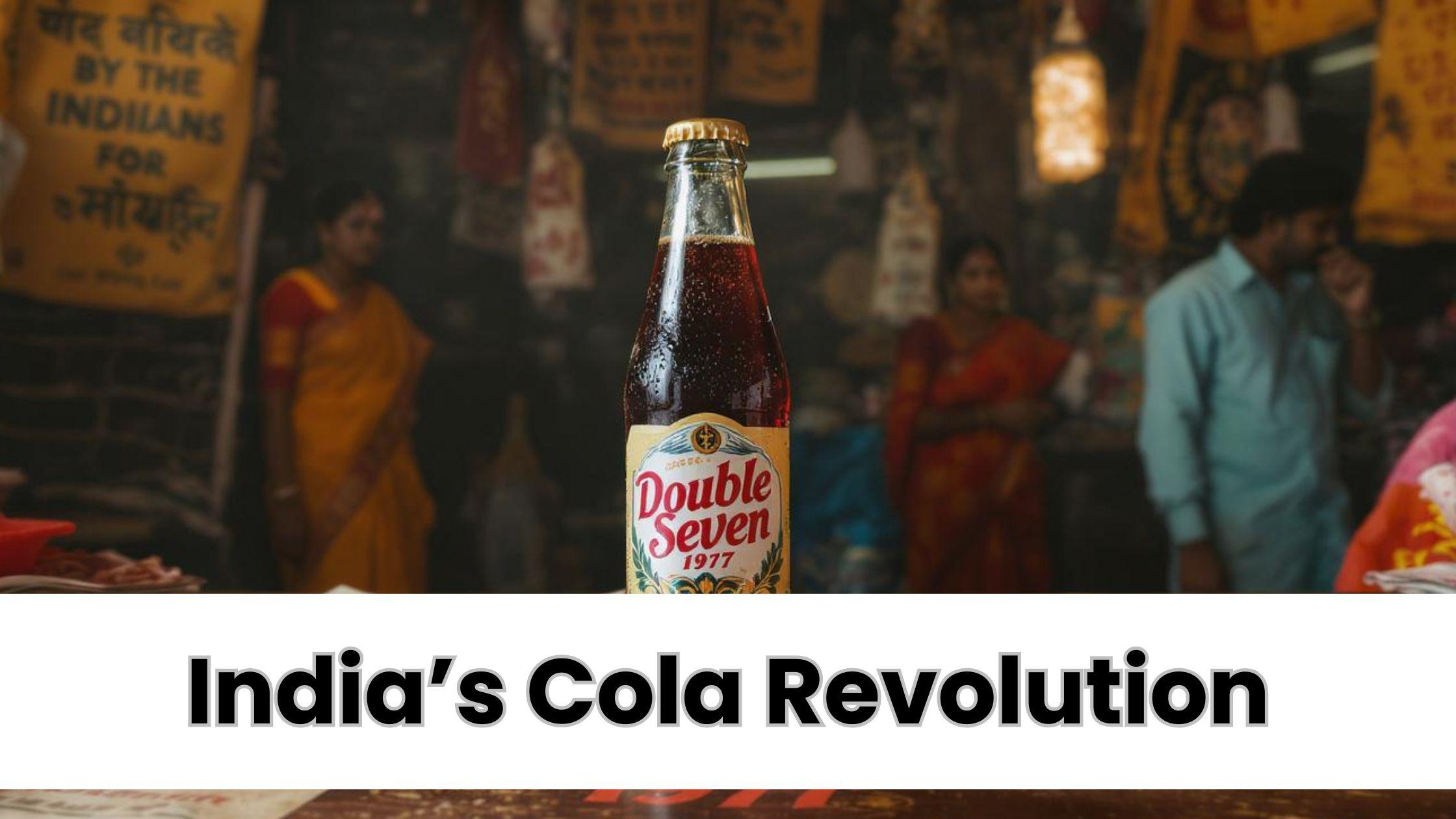The Cultural Impact of Double Seven Cola in India

In 1977, Coca-Cola’s exit from India created an unprecedented opportunity for domestic brands to step into the soft drink market. Among these, Double Seven emerged as a government-backed alternative, marking a significant chapter in India’s Cola Revolution. The cola not only filled the gap left by international giants but also symbolized India’s ambition for self-reliance, national pride, and economic independence. The launch of Double Seven was a strategic effort to demonstrate that Indian brands could compete in quality, availability, and taste.
The Birth of Double Seven
Modern Food Industries, a government enterprise, launched Double Seven to commemorate the year 1977 and to reflect a new era of industrial and national optimism. The cola was formulated at the Central Food Technological Research Institute in Mysore, ensuring it suited Indian taste preferences while maintaining high standards of quality. The government aimed to create a beverage that was affordable, accessible, and capable of inspiring consumer loyalty.
Government Support and Distribution Network
The Janata Party government provided significant backing to ensure the success of Double Seven. Beyond production, distribution networks were expanded to reach urban centers and smaller towns. Incentives were offered to regional bottlers, enabling widespread availability while also promoting local employment and business growth. The government’s strategic involvement ensured that Double Seven could quickly establish itself in a market previously dominated by multinational brands.
Marketing and Branding Strategy
Double Seven’s marketing emphasized patriotism and economic self-reliance. Print advertisements, radio jingles, and outdoor campaigns highlighted the brand’s Indian origin, appealing to consumers’ sense of national pride. The “77” logo and patriotic color scheme reinforced the message, making the beverage both recognizable and culturally relevant. The marketing narrative successfully positioned Double Seven as more than a drink—it became a statement of support for domestic industry and local enterprise.
Consumer Reception and Popularity
The launch of Double Seven was met with enthusiasm from consumers. Urban areas quickly adopted the beverage in offices, schools, and retail outlets, while regional bottlers extended its reach to smaller towns. The cola became a staple at celebrations, social gatherings, and everyday refreshment. Families embraced Double Seven not only for its taste and affordability but also for the pride of supporting a homegrown product in a period of economic nationalism.
Challenges and Competition
Despite its early success, Double Seven faced competition from private domestic brands such as Thums Up and Campa Cola, which often proved more agile in marketing and distribution. Political changes in 1980, including the return of Indira Gandhi, led to reduced government support, further challenging the brand’s market position. Additionally, evolving consumer preferences, influenced by increasing exposure to international products, gradually shifted demand to other brands. These factors contributed to a decline in Double Seven’s dominance over time.
Impact on India’s Beverage Industry
Double Seven’s emergence reshaped India’s beverage industry by proving that domestic brands could effectively compete with international giants. The cola encouraged private enterprises to invest in product innovation, branding, and distribution networks. The brand’s presence contributed to increased competition, greater consumer choice, and the overall growth of the Indian soft drink sector. It remains a notable example of the government’s role in supporting homegrown industries while inspiring entrepreneurial ventures.
Cultural and Social Significance
Beyond commerce, Double Seven had immense cultural impact. It appeared in media coverage, social events, and public gatherings, embedding itself into the collective memory of a generation. The cola symbolized self-reliance, national pride, and confidence in Indian industry. For many, Double Seven was more than a beverage; it was a reflection of India’s aspirations and the potential of local brands to thrive in a competitive marketplace.
Lessons for Modern Brands
Double Seven’s story offers valuable insights for contemporary marketers and policymakers. Government-backed initiatives can catalyze market entry but require ongoing support, product innovation, and quality to sustain competitiveness. Cultural and emotional narratives can influence adoption, but long-term success relies on consistent product performance and accessibility. Understanding market dynamics and consumer preferences is critical to navigating competition and sustaining brand relevance.
Legacy and Nostalgia
Although Double Seven eventually lost prominence, its legacy remains strong. The brand is remembered as a symbol of India’s Cola Revolution and a pioneering example of domestic success in a market previously dominated by multinational corporations. Nostalgia for Double Seven continues to influence discussions around retro branding and reviving iconic Indian products. Its cultural and emotional impact highlights the lasting significance of homegrown innovations in India’s beverage sector.
Read Full Article : https://bizinfopro.com/news/marketing-news/indias-cola-revolution-how-double-seven-replaced-coca-cola/
About Us : BizInfoPro is a modern business publication designed to inform, inspire, and empower decision-makers, entrepreneurs, and forward-thinking professionals. With a focus on practical insights and in‑depth analysis, it explores the evolving landscape of global business—covering emerging markets, industry innovations, strategic growth opportunities, and actionable content that supports smarter decision‑making.
- Vibnix Blog
- Politics
- News
- Liberia News
- Entertainment
- Technology
- Éducation
- Art
- Causes
- Crafts
- Dance
- Drinks
- Film
- Fitness
- Food
- Jeux
- Gardening
- Health
- Domicile
- Literature
- Music
- Networking
- Autre
- Party
- Religion
- Shopping
- Sports
- Theater
- Wellness



